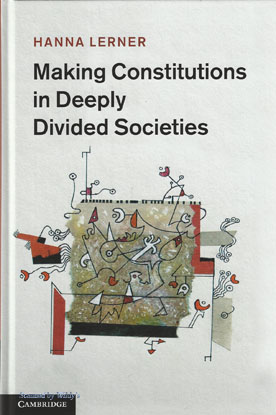We will be closed from 5pm Thursday 17th April for the Easter Bank Holidays, re-opening at 8.30am on Tuesday 22nd April. Any orders placed during this period will be processed when we re-open.

How can societies still grappling over the common values and shared vision of their state draft a democratic constitution? This is the central puzzle of Making Constitutions in Deeply Divided Societies.
While most theories discuss constitution-making in the context of a moment of revolutionary change, Hanna Lerner argues that an incrementalist approach to constitution-making can enable societies riven by deep internal disagreements to either enact a written constitution or function with an unwritten one.
She illustrates the process of constitution-writing in three deeply divided societies – Israel, India and Ireland – and explores the various incrementalist strategies deployed by their drafters. These include the avoidance of clear decisions, the use of ambivalent legal language and the inclusion of contrasting provisions in the constitution.
Such techniques allow the deferral of controversial choices regarding the foundational aspects of the polity to future political institutions, thus enabling the constitution to reflect a divided identity.